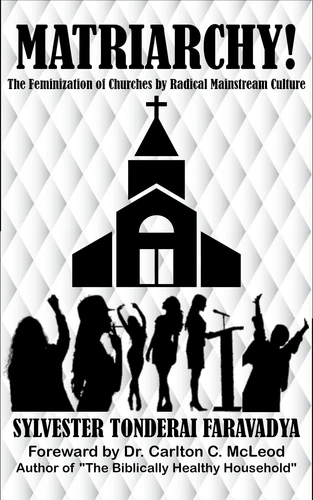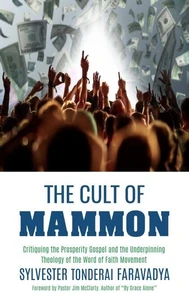Matriarchy! The Feminization of Churches by Radical Mainstream Culture
Par :Formats :
Disponible dans votre compte client Decitre ou Furet du Nord dès validation de votre commande. Le format ePub est :
- Compatible avec une lecture sur My Vivlio (smartphone, tablette, ordinateur)
- Compatible avec une lecture sur liseuses Vivlio
- Pour les liseuses autres que Vivlio, vous devez utiliser le logiciel Adobe Digital Edition. Non compatible avec la lecture sur les liseuses Kindle, Remarkable et Sony
 , qui est-ce ?
, qui est-ce ?Notre partenaire de plateforme de lecture numérique où vous retrouverez l'ensemble de vos ebooks gratuitement
Pour en savoir plus sur nos ebooks, consultez notre aide en ligne ici
- FormatePub
- ISBN8201239640
- EAN9798201239640
- Date de parution05/07/2022
- Protection num.pas de protection
- Infos supplémentairesepub
- ÉditeurJL
Résumé
On the fiftieth anniversary of women's suffrage in New York, before tens of thousands of women, Betty Friedan, the godmother of the second wave of feminism, pontificated that, owing to the inescapable nature of the feminist revolution, the politics of America would never be the same again. Indeed, the gender politics of the U. S. - and the world - would never be the same again. Half a century later, with the feminist movement gone full circle and got a lion's share in the public square, with a radical fourth wave premised on intersectionality perfecting conflict theory, it is imperative to assess the achievements and legacy of the movement.
Yet since maleness and femaleness are not social constructs, it becomes inconceivable to address feminism without addressing the feminist's viewpoint of God. As the girl-power of secular feminism took center stage, religious feminism was steadfastly rising on the horizon. Prioritizing standpoint epistemology and revisionist hermeneutics, the rallying cry of church feminists now is the deconstruction of Christian patriarchy which must be evinced by egalitarian ordination of women and intersectional ordination in respect of the LGBTQ+ community.
One question begs for an answer within all this myriad: if feminism is empowering, why are many educated women voluntarily leaving the workplace to be homemakers?
Yet since maleness and femaleness are not social constructs, it becomes inconceivable to address feminism without addressing the feminist's viewpoint of God. As the girl-power of secular feminism took center stage, religious feminism was steadfastly rising on the horizon. Prioritizing standpoint epistemology and revisionist hermeneutics, the rallying cry of church feminists now is the deconstruction of Christian patriarchy which must be evinced by egalitarian ordination of women and intersectional ordination in respect of the LGBTQ+ community.
One question begs for an answer within all this myriad: if feminism is empowering, why are many educated women voluntarily leaving the workplace to be homemakers?
On the fiftieth anniversary of women's suffrage in New York, before tens of thousands of women, Betty Friedan, the godmother of the second wave of feminism, pontificated that, owing to the inescapable nature of the feminist revolution, the politics of America would never be the same again. Indeed, the gender politics of the U. S. - and the world - would never be the same again. Half a century later, with the feminist movement gone full circle and got a lion's share in the public square, with a radical fourth wave premised on intersectionality perfecting conflict theory, it is imperative to assess the achievements and legacy of the movement.
Yet since maleness and femaleness are not social constructs, it becomes inconceivable to address feminism without addressing the feminist's viewpoint of God. As the girl-power of secular feminism took center stage, religious feminism was steadfastly rising on the horizon. Prioritizing standpoint epistemology and revisionist hermeneutics, the rallying cry of church feminists now is the deconstruction of Christian patriarchy which must be evinced by egalitarian ordination of women and intersectional ordination in respect of the LGBTQ+ community.
One question begs for an answer within all this myriad: if feminism is empowering, why are many educated women voluntarily leaving the workplace to be homemakers?
Yet since maleness and femaleness are not social constructs, it becomes inconceivable to address feminism without addressing the feminist's viewpoint of God. As the girl-power of secular feminism took center stage, religious feminism was steadfastly rising on the horizon. Prioritizing standpoint epistemology and revisionist hermeneutics, the rallying cry of church feminists now is the deconstruction of Christian patriarchy which must be evinced by egalitarian ordination of women and intersectional ordination in respect of the LGBTQ+ community.
One question begs for an answer within all this myriad: if feminism is empowering, why are many educated women voluntarily leaving the workplace to be homemakers?




